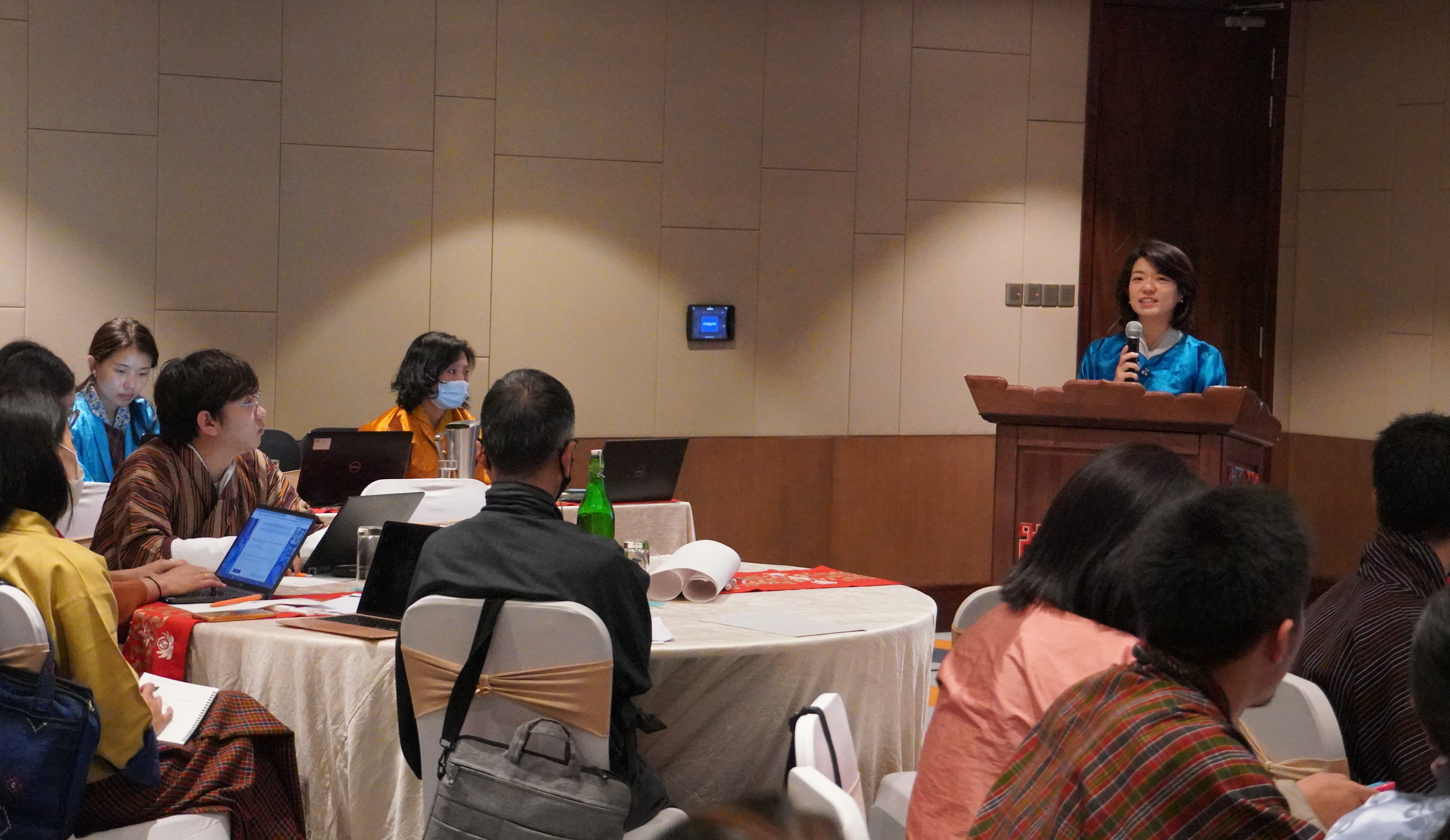Bhutan
Building public servants' capacity in strategic foresight
June 17, 2022
Over 60 public servants attended the introductory training on strategic foresight organized by the Ministry of Labour and Human Resources in partnership with UNDP.
‘Future’ is something we can change and shape collectively. But for that we must first understand and make sense of future. And how do we do this? This was the crux of the two-day training workshop on strategic foresight that brought together more than 60 public servants from various ministries and agencies.
Strategic foresight is a structured and systematic way of anticipating a range of possible future scenarios to better prepare for change. As opposed to traditional forecasting models that rely solely on past data, futures and foresight methods embrace uncertainty and recognizes the power of imagination and the unlimited possibilities ahead of us to inform current decision-making. Applied at personal, organizational and national level, foresight allows us to prepare for potential threats and enhances our ability to capitalize on hidden opportunities.
Strategic foresight is an iterative exploration, that helps us to mine the external environment for trends and emerging issues and leverage those insights to create maps of the emerging landscape. These well-informed maps of the future allow us to test our current strategy, develop breakthrough innovations, and create transformative change.
Jose Ramos and John Sweeney, both futurists at Action Foresight, a leading provider of foresight services, supporting a broad range of organizations, institutions and groups across all sectors to envision and create a future they want, provided the training. They introduced the participants to the futures research and studies, including the past, contemporary and post-normal concepts of strategic foresight or futures thinking and frameworks and models for applying foresight in planning and policy and decision making.
The trainers also walked the participants through ways to implement strategic foresight within the context of Anticipatory Governance. They were introduced to the Triple-A (Anticipatory, Agility and Adaptive) Governance framework, which is an integrated notion for considering how organizations can anticipate change, develop organizational agility (shifting mindsets), and adapt and shape change through various means.
Tashi Wangmo, Secretary, Ministry of Labour and Human Resources

Azusa Kubota, Resident Representative, UNDP Bhutan
The workshop was aimed at introducing public servants to strategic foresight concepts and related tools and methods to help build plans and strategies that are more resilient to external environmental factors. A clear view of the trajectory of change and how it could reshape the public policy landscape is increasingly required to make future fit decisions. By gaining an understanding on strategic foresight and developing proficiency over the approaches introduced, officials can help respective agencies broaden their perspectives on threats and opportunities and thereby assist in formulating an appropriate response.
UNDP Resident Representative Azusa Kubota said the VUCA (volatile, uncertain, complex and ambiguous) world is bringing about fast, disruptive changes that are consistently challenging our ability to adapt and respond.
“To navigate the VUCA world, we must also adapt planning and policy making processes. This is where the importance of strategic foresight comes in. And as is the case with adopting any new approaches, governments’ ability to apply strategic foresight is directly linked to the capacities of the public service in future thinking, foresight tools and practices. This workshop was designed to help equip public servants with conceptual and methodological literacy in future thinking and foresight.”
The training workshop was conducted as part of the “Future Workforce Study: Anticipating Emerging Skills in Bhutan’s Digital Creative and Agricultural Sector” led by the Ministry of Labour and Human Resources in partnership with UNDP. The job market is one area where changes are happening at a whirlwind speed. This future-oriented systematic anticipation of skills will not only help prepare individuals, employers, enterprises, governments, and training providers for future competencies but also enable strategic responses to address skills gaps in a timely manner.
Gracing the event virtually, the Secretary, Ministry of Labour and Human Resources, Tashi Wangmo highlighted the rising unemployment rate. The overall unemployment rate hit an all-time high of 5% while the youth unemployment rate soared to 22.6% in 2020. Although the unemployment rate decreased in 2021, Dasho mentioned that the drop was not significant with the overall unemployment at 4.8% and youth unemployment at 20.9%.
“The Foresight Study is going to be of paramount importance for Bhutan since skills gaps, and mismatch of expectation of jobseekers are the two key challenges faced in the labour market. A 10–20-year outlook for workforce demand for Bhutan’s creative, digital and agricultural industries that this study will provide can be used to drive ideas and response strategies particularly in workforce supply and capability building. The report that will be generated from this Foresight study shall be owned and used by all the relevant stakeholders, not just by the MoLHR,” said Dasho.

 Locations
Locations
